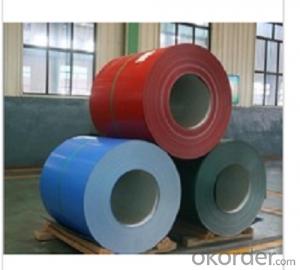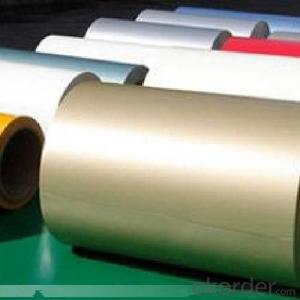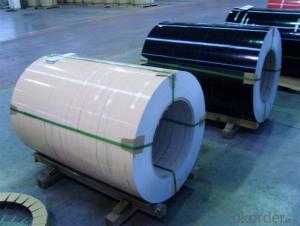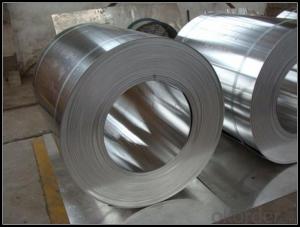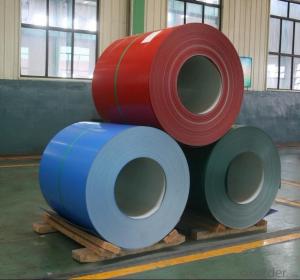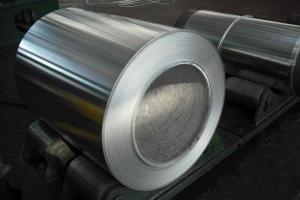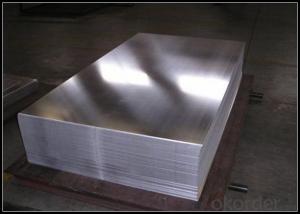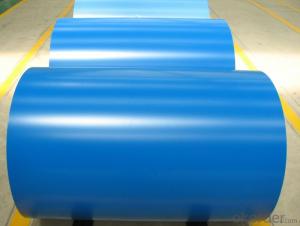5083 Aluminum Coil for Composite Panel 110 Coating Aluminium Coil
- Loading Port:
- Qingdao
- Payment Terms:
- TT OR LC
- Min Order Qty:
- 200 m.t.
- Supply Capability:
- 200 m.t./month
OKorder Service Pledge
OKorder Financial Service
You Might Also Like
Specification
The Specification of Coated Aluminium Foil
As shielding material, it is used for cables which must be free of electromagnetic or electrostatic interference, such as communication cables, data cables, coaxial cables, LAN cables, signal cables, computer PC board and other precision components.
Widely used in ventilation industry for flexible duct pipe production, printing, packaging, estate construction and so on.
PVDF Coated:
Coated Aluminum Coil features with super durability and weather resistance,and better properties to anti-acid,anti-alkali,keeping more than 15 years without fading in using as external wall cladding.
The Main Features of Aluminium Coated Coil:
1. Shred and pulverize the waste tire into the rubber power of 40-120mesh, and automatically separate the steel wire, fiber, Nylon compeltely through magnet separator and vibrating screen at normal temperature.
2. Compact structure, small space and easy maintennance
3.Lower energy consumption and good cost performance of investment
4.High-automatic and programmed control, higher coperatioin stability and more efficient running
5.No polluted water, no waste gas and no waste residuce during production process
The Imagin
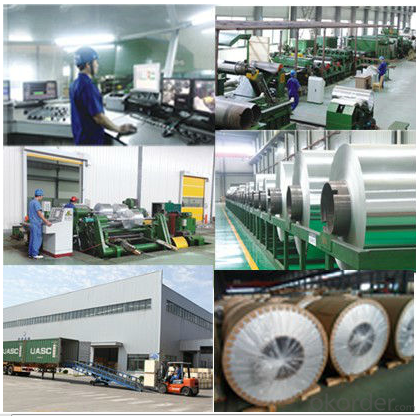
FAQ:
Q: Can you provide free samples?
A: Yes, free samples will be sent to you on freight at destination.
Q: Can I get your latest catalogue?
A: Yes, it will be sent to you in no time.
Q: What is the MOQ?
A: 5 tons
Q: What are your payment terms?
A: We accept L/C,T/T, West Union,etc.
- Q: Can aluminum coils be used for HVAC systems?
- Yes, aluminum coils can be used for HVAC systems. They are commonly used due to their durability, resistance to corrosion, and efficiency in transferring heat.
- Q: How are aluminum coils protected against UV exposure during storage?
- Aluminum coils are typically protected against UV exposure during storage through the application of a protective coating or the use of UV-resistant packaging materials. Aluminum coils are highly susceptible to UV degradation, which can result in discoloration, surface damage, and reduced performance. Therefore, manufacturers and distributors take special precautions to ensure that the coils are shielded from harmful UV rays. One common method is the application of a protective coating on the surface of the coils. This coating acts as a barrier between the aluminum material and UV radiation, preventing direct exposure. The coating is typically a specialized paint or lacquer that contains UV inhibitors, which absorb or reflect UV rays, thereby minimizing damage to the coils. This protective layer also helps to preserve the aesthetic appearance of the coils and extend their lifespan. In addition to coatings, aluminum coils can also be stored in UV-resistant packaging materials. These materials are designed to block or absorb UV radiation, effectively creating a shield around the coils. Common UV-resistant packaging materials include polyethylene films, which are specifically formulated to provide excellent UV protection. By storing the coils in such packaging, they are safeguarded against direct sunlight and other sources of UV radiation. It is worth noting that UV protection measures are particularly crucial during long-term storage or transportation, as the coils may be exposed to UV rays for extended periods. By implementing these protective measures, manufacturers and distributors ensure that the aluminum coils maintain their quality and performance, even when stored in environments with high UV exposure.
- Q: Can aluminum coils be used in explosive environments?
- No, aluminum coils cannot be used in explosive environments as aluminum is not intrinsically safe and can ignite or cause sparks in the presence of flammable or explosive gases.
- Q: Are aluminum coils suitable for outdoor signage?
- Yes, aluminum coils are suitable for outdoor signage. Aluminum is a highly durable and weather-resistant material, making it perfect for outdoor applications. It is corrosion-resistant, meaning it can withstand exposure to various weather conditions such as rain, snow, and sunlight without deteriorating or rusting. Additionally, aluminum coils are lightweight and versatile, allowing for easy installation and customization. They can be easily cut, shaped, and painted to create eye-catching and long-lasting outdoor signage. Overall, aluminum coils are a popular choice for outdoor signage due to their durability, weather resistance, and aesthetic appeal.
- Q: What are the pros and cons of utilizing aluminum coils in storage applications?
- <p>Aluminum coils offer several advantages for storage, including high durability, corrosion resistance, and lightweight properties which make them easy to handle. They are also recyclable and have good thermal conductivity, which can be beneficial in temperature-controlled environments. However, there are downsides such as higher initial costs compared to some other materials and potential for denting or damage if not properly handled. Additionally, while aluminum is generally non-magnetic, it can be attracted to strong magnets, which might be a consideration in certain storage scenarios.</p>
- Q: What are the weight and length specifications of aluminum coils?
- Depending on the specific type and purpose of the coil, aluminum coils can have varying weight and length specifications. Typically, the weight of aluminum coils can range from a few hundred pounds to several thousand pounds, while their length commonly varies from a few hundred feet to several thousand feet. Nevertheless, it should be emphasized that these specifications can be tailored to meet the specific requirements of the intended application or industry.
- Q: Can aluminum coils be used in power generation facilities?
- Yes, aluminum coils can be used in power generation facilities. Aluminum has excellent thermal conductivity, making it an efficient choice for heat transfer applications in power generation equipment such as heat exchangers and condensers. Additionally, aluminum's lightweight nature and corrosion resistance make it a viable option for various power generation processes, including wind turbines and hydroelectric power plants.
- Q: What is the typical coil diameter for aluminum coils?
- The typical coil diameter for aluminum coils can vary depending on the specific application and industry requirements. However, in general, aluminum coils typically have a diameter ranging from 12 inches to 72 inches. The specific diameter is determined by various factors such as the thickness of the aluminum sheet, the desired coil weight, and the equipment used for processing and handling the coils. Different industries, such as automotive, construction, and packaging, may have specific coil diameter specifications based on their unique manufacturing processes and end-use requirements.
- Q: This question asks for methods to prevent rusting on aluminum coils during storage and transportation.
- <p>To prevent rusting on aluminum coils during storage and transportation, ensure that the coils are clean and dry before storage. Use a protective coating or wrapping to shield them from moisture and contaminants. Store the coils in a cool, dry place away from direct sunlight and corrosive substances. Avoid stacking them where they may come into contact with acidic materials. During transportation, secure the coils properly to prevent movement that could lead to scratches or damage. Use moisture-resistant covers to protect them from the elements. Regularly inspect the coils for signs of corrosion and address any issues promptly.</p>
- Q: A cube of solid aluminum has a volume of 1.00 m3 at 20°C. What temperature change is required to produce a 130 cm3 increase in the volume of the cube?
- The linear expansivity of aluminum is 23 x10^-6 /K. Bulk expansivity is 3 x 23 x10^-6 / k For 130 [cm^3] the temperature required is 130 [cm] ^3/ 3 x 23 x10^-6 = 0.00013/[3 x 23 x10^-6] = 1.88 K ========================= If each side of the cube of side 1m expands by e, then its new volume = [1+e]^3 = 1 + 3e + 3e^2 +e^3. Neglecting high powers of e as negligible, the increase in volume is 3e. But e = 23 x10^-6 x rise in temperature 3e = 3*23 x10^-6 x rise in temperature. Given 3e = 0.00013 0.00013= 3*23 x10^-6 x rise in temperature Rise in temperature = 0.00013 / 3*23 x10^-6 = 1.88 K
Send your message to us
5083 Aluminum Coil for Composite Panel 110 Coating Aluminium Coil
- Loading Port:
- Qingdao
- Payment Terms:
- TT OR LC
- Min Order Qty:
- 200 m.t.
- Supply Capability:
- 200 m.t./month
OKorder Service Pledge
OKorder Financial Service
Similar products
Hot products
Hot Searches
Related keywords
